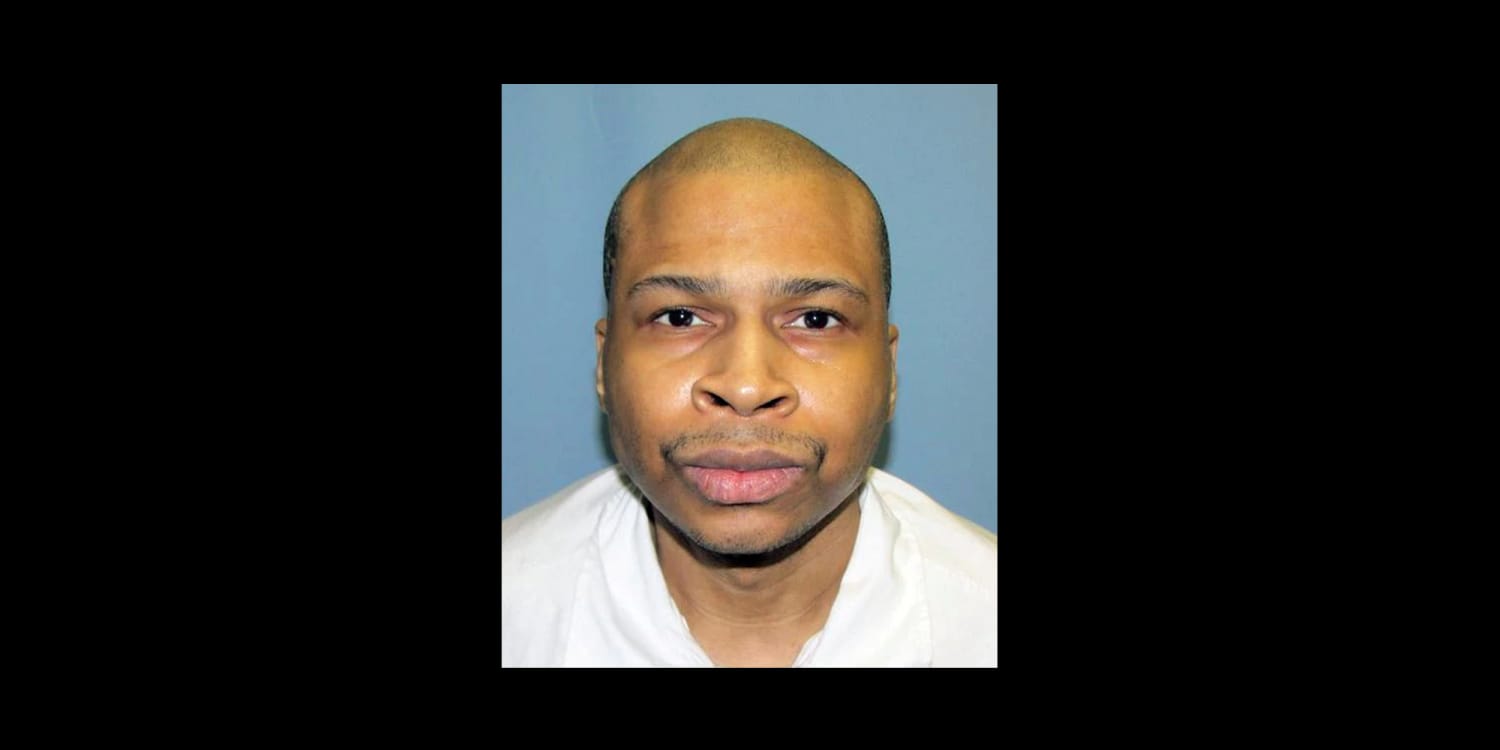[ad_1]

An Alabama inmate died after being “baked” to death in a sweltering prison cell described as “hotter than three hells,” his family alleged in a federal wrongful death lawsuit.
Thomas Lee Rutledge, 44, died of hyperthermia on Dec. 7, 2020, in the mental health ward at William E. Donaldson Correctional Facility in Bessemer, Alabama, according to a lawsuit filed by his sister in U.S. District Court in the Northern District of Alabama.
Rutledge was found unresponsive with a body temperature of 109 degrees in a cell reported to be between 101 to 104 degrees, the suit said, citing the Jefferson County Coroner’s report.
The amended complaint filed Nov. 30 accused prison staff, wardens and contractors —defendants in the lawsuit — who worked on the heating and boiler system at the facility of “deliberate indifference and malice” in his death.
Staff was aware of new HVAC system mishaps
The lawsuit alleged that the Donaldson facility had a new air conditioning system and controls installed in 2019 and 2020.
T Unit, the mental health ward where Rutledge was held, was not included in the project, according to the lawsuit. It’s unclear if any other wards or areas were left out of the project.
However, during the renovations, HVAC company P&M Mechanical, a defendant, and its subcontractors “negligently or wantonly damaged or destroyed the thermostatic controls for T Unit,” the lawsuit alleged.
The suit said that as a result of the negligence or wantonness of P&M and its subcontractors, “after these controls were disabled, the flow of hot water through the coils that heat the air that is supplied to T Unit by the air handler was unregulated, resulting in a situation of continuous, unregulated heating to T Unit.”
P&M Mechanical Inc. responded to the complaint denying Rutledge’s death was a result of any actions by the company and said they didn’t have sufficient information to admit or deny the allegations regarding whether his death was the result of indifference or malice from prison workers and maintenance personnel.
The suit alleged that plant maintenance supervisor Billy Kennedy learned that the thermostatic controls for the T Unit had been destroyed and other issues related to the heating of the T Unit all prior to Rutledge’s death.
Kennedy not only allowed the heating water temperature in the boiler system to exceed 130 degrees around the time of Rutledge’s death, but he then allowed the boiler temperature logs to be destroyed after the state Department of Corrections received a subpoena for those records, the suit alleged.
Attorneys for Kennedy also denied that he was “deliberately indifferent or acted with malice towards Rutledge,” and denied that the plaintiff is entitled to damages or relief against him, according to his response filing.
Alleged negligence by corrections officers
The suit said that inmates in the T Unit had complained of “excessive heat” all weekend prior to Rutledge’s death.
In the T Unit, inmates were confined to their cells “around the clock, including for eating and bathing,” meaning there was no respite from the heat, according to the lawsuit.
Some inmates “attempted to limit the heat output to their cells by stuffing clothing in the vents to reduce the heat output,” the suit said. But such efforts were ineffective.
Not only did corrections officers and staff know that the T Unit had heat issues, but special care was needed for inmates like Rutledge, who were taking psychotropic medication, which increased the risk of heat-related illness, the lawsuit said.
In such cases, officers are supposed to perform regular checks on inmates to assure their wellbeing when the temperature is above 85 degrees as per the prison’s protocol, the suit said.
The evening of Rutledge’s death, the heat in T Unit was over 100 degrees, the lawsuit said, and the blistering temperature was “obvious” to officers who conducted periodic checks.
The lawsuit named multiple corrections officers and employees, and stated in particular that corrections officers Christie Sansing, J. Rodgers, C. Dean, and G. Griffin were all responsible for the wellbeing of inmates in the T Unit the night of Dec. 7, 2020.
Rodgers, Dean, and Griffin had conducted “living and breathing” and security checks periodically throughout the evening, but consistently reported “all 96 units alive and well” and failed to do anything about the heat.
“However, Rutledge was already suffering from life-threatening heat distress at this point, as at 8:20 p.m. an inmate runner reported to the cube officer Sansing that Rutledge was non responsive,” the lawsuit said.
Investigator Clark Hopper, who was present at the ward that night after Mr. Rutledge’s death, said in an interview that he opened a tray door to speak with a T Unit inmate from his cell and it was like “opening the oven,” the suit said.
Hopper added: “When he dropped his … meal door … it was hotter than three hells when it dropped.”
Attorneys for Sansing, Rodgers, Dean, and Griffin did not respond to requests for comment Friday. Their attorneys denied the allegations in the lawsuit, according to response filing
Rutledge was looking forward to possible release
Rutledge had been sentenced to life without the possibility of parole in 1995 for offenses committed when he was a juvenile.
However, he was hopeful for a new chance at life after a Supreme Court decision held that mandatory life sentences without the possibility of parole for juvenile offenders were unconstitutional.
Had he lived, he would have become eligible for parole and possible release in 2024, the lawsuit said.
“He had dreams of obtaining his freedom, joining his mother in Alaska, and starting a new and productive life,” the complaint said.
But those dreams were cut short by his untimely death.
The U.S. Department of Justice has an ongoing lawsuit against the state over prison conditions and mentioned Rutledge’s death in a court filing last year as an example of the “serious risks posed by dangerous conditions at Alabama’s prisons for men.”
While Alabama has acknowledged challenges in its prison system, it disputes the Justice Department’s claim that conditions are unconstitutional. The DOJ’s lawsuit is expected to go to trial in 2024.
NBC News has reached out to the Alabama Department of Corrections and attorneys for each of the defendants for comment.
The Department of Corrections told AL.com that they declined to comment due to pending litigation.
Jon C. Goldfarb, an attorney for Rutledge’s sister Laventra Denice Rutledge, who filed the lawsuit, said Friday that the case is at the early stages of litigation.
“Multiple defendants have recently been added to the litigation as we continue pressing forward with the case trying to uncover the truth of what happened to Mr. Rutledge,” he said.
[ad_2]
Source link
